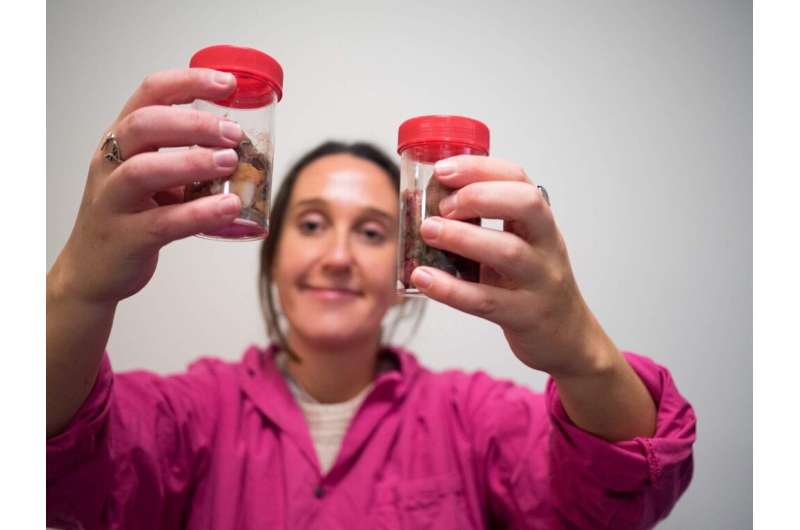Fishing for solutions to the plastic problem

More than 35 percent of fish caught in the waters off southern Australia contain microplastics, and the problem is most acute in South Australia, with plastic found in 49 percent of fish, according to research from the University of Adelaide.
While Australian waters remain cleaner than many international fishing zones, lead researcher Nina Wootton found that many commercial and recreational fishers in the South Australian fishing industry weren't aware that Australia even had an ocean plastic problem, in research published in Marine Policy this month.
"We wanted to find out what people knew about microplastic pollution in fish, from fishers to fishmongers to consumers," Nina said. "It varied, but about half weren't aware it was an issue because South Australian oceans had such a reputation for being clean."
"We still have time to make sure Australian seafood products remain some of the cleanest in the world, but we need the seafood industry, and the general public, to recognize the problem and start taking positive actions now."
The fishing industry can take a lead in solving the problem: previous studies estimate that 10% of plastic pollution in the ocean comes from fishing sources, so fishers can improve the quality of their own product by limiting their use of plastic where possible.
While fishers and other stakeholders were worried about the cost and inconvenience, simple actions like replacing plastic fishing equipment with natural materials, or using biodegradable bags at fish markets, could quickly reduce the amount of plastic ending up in the ocean. The researchers suggest an education program to raise awareness of the problem and provide solutions that the industry could implement easily to maintain the quality of locally caught fish.
Michael Violante, who has been part of the family-run fishmongers Seafood Works for nearly 25 years, said he was initially shocked by the findings.
"Fresh local seafood is a big part of my life, and to know that South Australia is not completely exempt from the plastic problem has got me thinking," he said. "I am open to making changes to the way I use plastic and encourage others to do the same. From the fishers to the consumers, we all share this planet and can all do our small part to help lead the way to a cleaner and healthier ocean."
The study shows the importance of bringing all stakeholders to the table to chart the way forward.
"We know that by bringing fishers into conversations around policy, we encourage the acceptance of new management ideas within the industry," Nina said. "There is lots we can do to mitigate the problem of ocean plastic but we cannot begin unless people are aware there is a problem."
This isn't just a South Australian problem, or even an Australian one—about 75% of the fish we eat is imported from overseas. Future research could include a global audit of plastic in the fishing industry, and an evaluation of ways in which the industry can adopt new practices quickly and affordably.
More information: Nina Wootton et al, Perceptions of plastic pollution in a prominent fishery: Building strategies to inform management, Marine Policy (2021). DOI: 10.1016/j.marpol.2021.104846
Journal information: Marine Policy
Provided by Science in Public





















